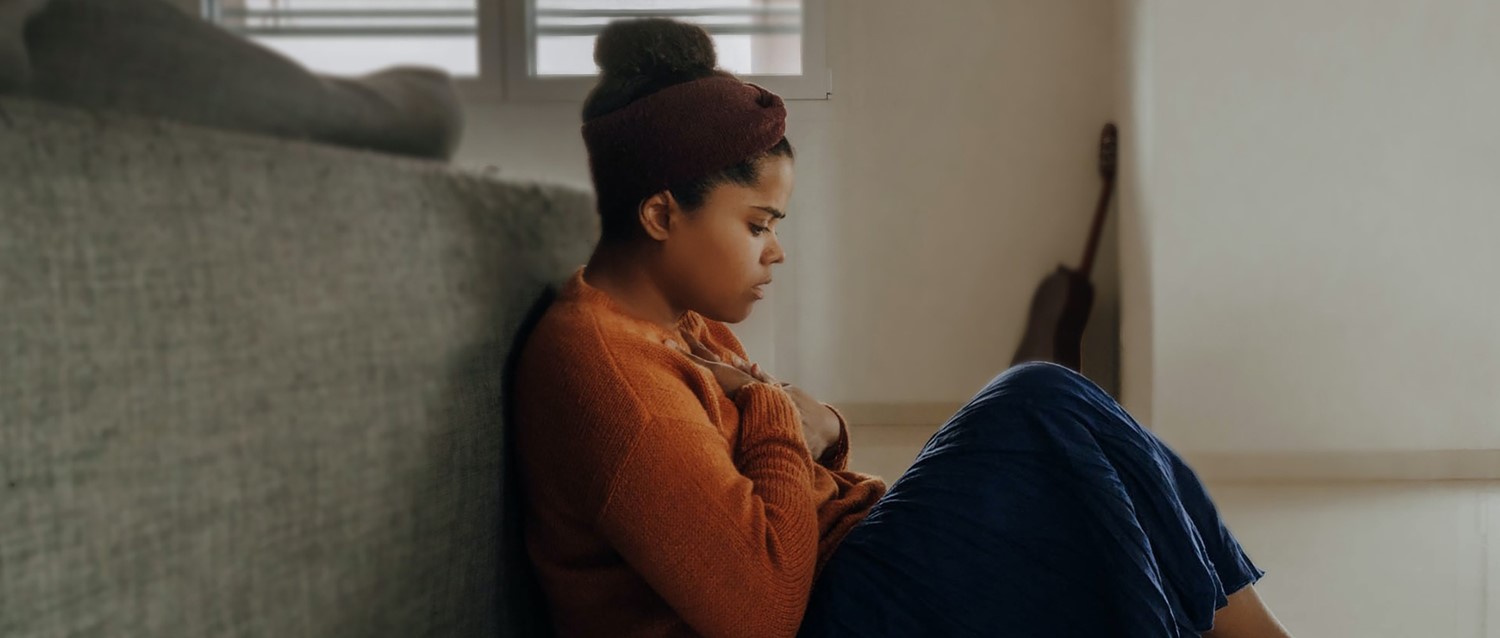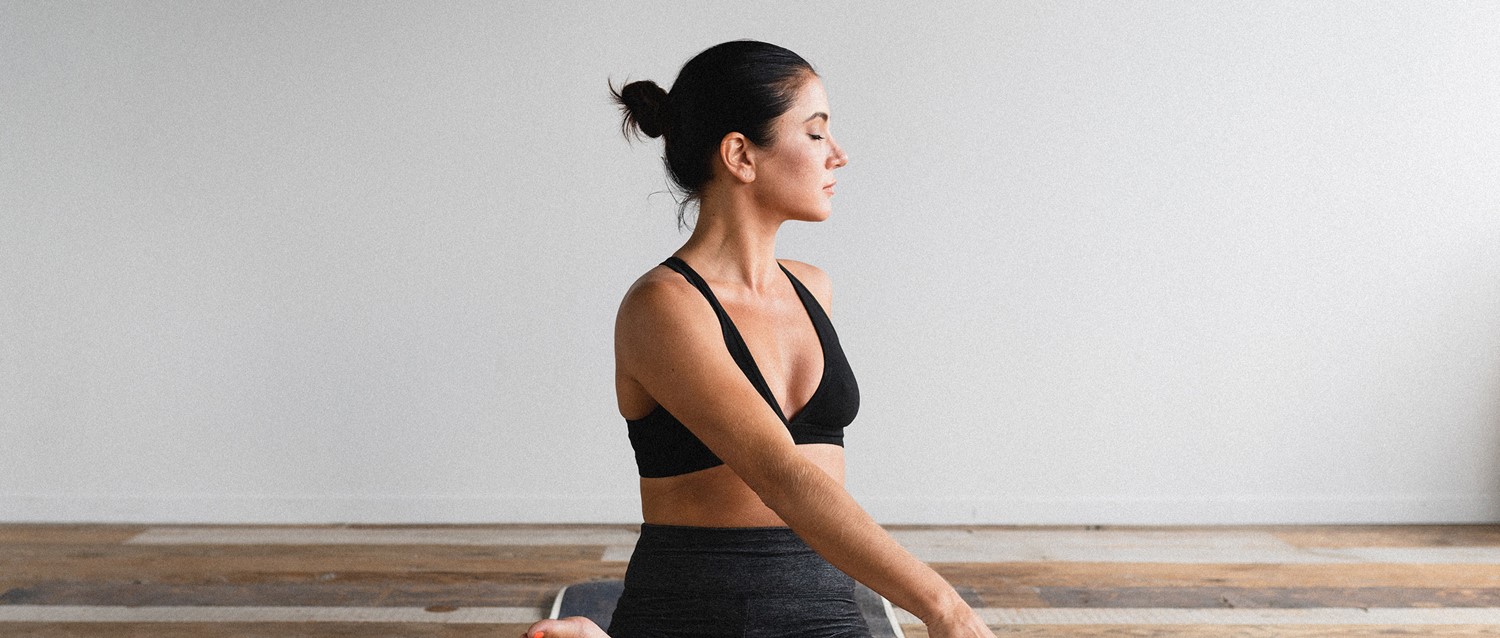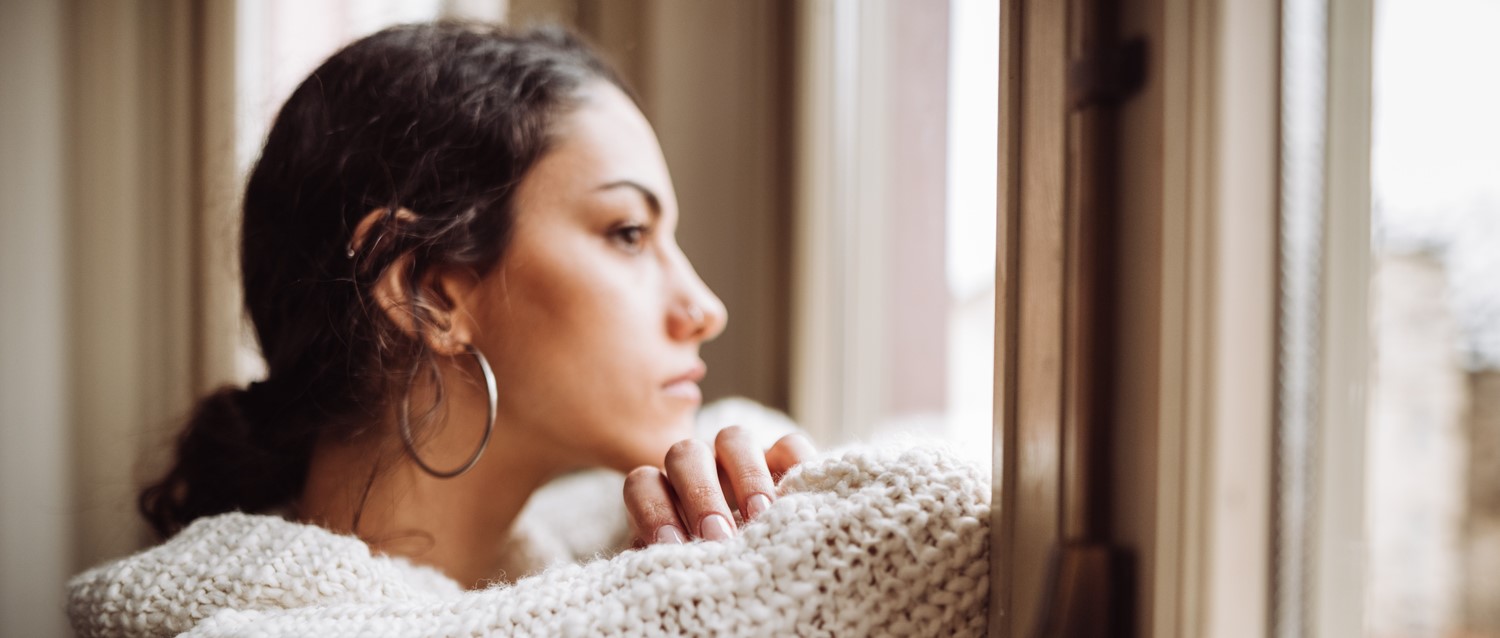
How to spot the symptoms of social anxiety
Peer reviewed by Dr Sarah Jarvis MBE, FRCGPLast updated by Amberley DavisLast updated 23 Feb 2024
Meets Patient’s editorial guidelines
- DownloadDownload
- Share
- Language
- Discussion
Social anxiety usually starts in your teenage years but can be triggered at any stage of life. It's a serious condition that can affect all aspects of your life, but there are self-care tips and professional therapies that can help and even cure social anxiety. Speaking to a loved one, a support group, or a mental health professional is also important.
In this article:
What is social anxiety?
"Social anxiety is an overwhelming fear of social encounters," says Dr Nilufar Ahmed, psychotherapist and psychologist at the University of Bristol. "This can include talking to people - even close family and friends - going to social events, and talking on the phone."
Is social anxiety a mental illness?
It may sound a lot like shyness, but social anxiety is more severe than a personality trait. Known by mental health professionals as social anxiety disorder - and previously often called social phobia - social anxiety is one of the most common mental illnesses and can have a very serious effect on your quality of life.
"Social anxiety can affect your existing relationships, your ability to form friendships and to date, and your ability to perform effectively at work through avoidance of engaging with others," Ahmed adds.
Terence Watts, psychotherapist and fellow of The Royal Society of Medicine, describes how anxiety in social situations results from "negative thoughts, fear, and anxiety of what people may think of you, and a belief that you may be subject to humiliation of some sort. It is an emotional response problem that can be resolved by good psychological therapy."
Links with other mental health issues
If you have symptoms of social anxiety, there is also a slightly higher chance of you experiencing other psychiatric disorders1. For example, people with social anxiety may also experience:
Depression - 19%.
Substance use disorder - 17%.
Panic disorder - 6%
PTSD - 3%.
What are the symptoms of social anxiety?
Back to contentsMental social anxiety symptoms
These include:
Excessive worrying about social interactions with others.
Feeling extreme anxiety leading up to a social event.
Avoiding social situations.
Overthinking "embarrassing" things you might have said or done following an event.
Fearing what others think of you.
Feelings of low confidence and low self-esteem in your social skills.
Physical social anxiety symptoms
These include:
Excessive sweating.
Blushing.
Increased heart rate.
Clumsiness.
An upset stomach.
When should you seek help for social anxiety?
"If your social anxiety is beginning to get in the way of your day-to-day functioning, then it's important to seek the appropriate support," advises Dr Elena Touroni, consultant psychologist and co-founder of The Chelsea Psychology Clinic.
Confiding in a loved one could be a good place to start. However, Watts cautions that it "probably won’t go away on its own, but can respond well to therapy".
Is it shyness, introversion, or social anxiety?
Watts says: "If you just prefer your own company and don't much enjoy social gatherings, it's introversion and not social anxiety. But if you come out in a sweat as soon as anybody mentions a dinner party or group activity, then you could do with help."
Ahmed says: "Getting a little bit nervous about meeting new people or speaking at a work meeting is natural. But if excessive worrying is affecting your ability to think about other things, it might be worth talking to someone."
Continue reading below
What causes social anxiety?
Back to contentsWhile there are common symptoms of social anxiety, each person's experience is unique. There are various possible biological and environmental causes and triggers for social anxiety, including having a family history of social anxiety, a naturally timid temperament, experiencing bullying or rejection, and facing stressful social demands at work.
Living with social anxiety
Back to contentsNo matter your particular circumstance or triggers, unmanaged social anxiety can have a great impact on your quality of life2. Unsurprisingly, your relationships with others tend to suffer, but there are many other areas of your life that can also take a hit.
You are more likely to underperform at school or drop out3.
Your wages may be 10% lower than those of the general population4.
You are less likely to marry and more likely to get divorced5.
You are more likely to use alcohol or other drugs in an attempt to soothe your anxiety6.
You are more likely to take days off work and to be less productive because of your symptoms7.
This is not to say that people with social anxiety can't be high achievers. What is important is finding tools to help prevent, manage, and relieve social anxiety symptoms when they flare up. Sonya and Rae share their personal experiences and offer some advice:
Sonya's story
Sonya Barlow is a radio presenter, author, and social entrepreneur who has suffered from social and digital anxiety - negative emotions around social media and being online.
"My social anxiety presented differently from what others may think it is. Around early November 2021, I found myself saying yes to many events, parties, and press initiatives and then becoming very anxious before attending and uncomfortable during the events.
"Towards the end of November, the opposite happened. I took myself offline and deleted my apps because just the thought of being around people, social, and networking would make me feel overwhelmed, flustered, and uneasy.
"I found myself extremely anxious, unable to leave my house and wanting to shy away from all conversations. This feeling of isolation and frustration had an impact on my confidence, community, and business. It also caused my chronic migraines to flare up."
Sonya's advice
Identify your social anxiety triggers, and unfollow and delete toxic friends and accounts that make you feel uneasy.
Only say yes to things you want. Saying no is a superpower that can help you set boundaries. For example, keep outings to once a week, limit your online screen time, or decide to scroll Instagram once a day.
Make your home a place of sanctuary - even through small things like new cushions or comfortable blankets.
Remember that the online world is a snapshot of someone's day, not their daily reality.
Take more time to focus on wellness - I spend 10 minutes in the sauna every other day with a book and go on regular meditative walks without my phone.
Rae's story
Rae, a social media influencer from Kent, talks about her anxiety:
"I was in an abusive relationship for 10 years, and after leaving my ex-husband the social anxiety began. Having always been in a couple - we met when we were 17 - then suddenly finding myself single seemed very strange and awkward for me.
"I realised, almost immediately, that even going into the corner shop would make me jittery. I hate large crowds, lifts, and shopping centres, and being on the Tube can bring me out in hives."
Rae's advice
I have had therapy to cope.
I realise that sometimes the situations that trigger my social anxiety are just unavoidable and avoiding all of them can lead to a vicious cycle. As adults, we have to face our fears, and so I take a deep breath and jump in.
Continue reading below
How to overcome social anxiety
Back to contentsTouroni shares her tips to manage or treat social anxiety disorder:
Remember that we are all in our own spotlight - in psychology, "the spotlight effect" is the idea that we have a tendency to overestimate how much others think about us or notice our behaviour when in reality most of us are much more focused on ourselves.
Stop avoiding events - this can be hard, but the more you put yourself in the situations you fear, the more you are able to prove your worst fears wrong. You also send the message to your brain that you are safe.
Plan what you're going to say beforehand - in the lead-up to social events, try planning topics to talk about in advance.
Watts also advises these quick coping strategies:
The control room
With your eyes closed, relax the muscles in your face -as if you don't want anybody to know what you're thinking.
Imagine a control room of your mind. Right in front of you is a lever, or a knob, or a touch screen, that has the legend 'social confidence' written underneath it and it's currently set at '1'.
Now use your mind to operate the control, raising the number to at least an '8'. The important bit is to give a big smile that fills your entire face, then open your eyes.
Do this just before you go out and it'll last for ages.
The clicker tricker
Imagine you’re holding a clicker gadget that makes a loud click when you press it.
Picture yourself at a social gathering, looking just as you normally feel, and click the imaginary clicker just once.
Now turn on the 'super-confident self- (it doesn't matter if it's an act - almost everybody else's is) and give two clicks with a big smile that fills your whole face.
When you need a boost, just hear that double click in your mind.
You may find that these tips help to alleviate your anxious thoughts. If this isn't the case, Watts recommends visiting a professional therapist to help address your symptoms of social anxiety.
Brain Working Recursive Therapy (BWRT)
This is a modern therapy that you can try with a therapist, or at home, where you can create a self-therapy session from Watts' book 'Reboot your life with Brain Working Recursive Therapy'. "Social anxiety is often triggered by the part of your brain that controls your automatic functions, such as breathing and heartbeat," says Watts.
"As soon as it senses a trigger - like going into a social situation - it sets off our 'fight or flight' mechanism which causes those anxious feelings. BWRT stops this response and creates new neural pathways (ways of thinking) dissolving the problem and replacing it with a new positive response. This can resolve anxiety and social anxiety in 1-4 sessions, rather than in weeks or months."
Whether you confide in friends and family, try cognitive behavioural therapy (CBT), plan ahead to control social situations from becoming too overwhelming, or seek professional treatments for social anxiety, Ahmed has this final advice: "Whatever you do, be gentle with yourself. Putting pressure on yourself or being critical won't make the anxiety go away and is likely to make it worse."
Further reading
Back to contentsNICE: Social anxiety disorder: recognition, assessment and treatment.
Van Ameringen et al: The impact of anxiety disorders on educational achievement.
Katzelnick et al: Impact of generalized social anxiety disorder in managed care.
Buckner et al: A biopsychosocial model of social anxiety and substance use.
Stein et al: Social phobia in the primary care medical setting.
Patient picks for Anxiety

Mental health
The breathing techniques to try if you have anxiety
Shallow, rapid breathing is one of the key physical symptoms of anxiety. This means deepening and controlling your breathing can be an effective means of calming yourself down.
by Abi Millar

Mental health
How to stop worrying about things you can't change
As COVID-19 dominates our daily lives, it's never been more obvious that there are some things that can't be controlled or even predicted. Worrying about things you can't change may be futile but how can you stop yourself spiralling into negative thought patterns?
by Natalie Healey
Article history
The information on this page is peer reviewed by qualified clinicians.
Next review due: 23 Feb 2027
23 Feb 2024 | Latest version
24 Apr 2022 | Originally published
Authored by:
Amberley Davis

Ask, share, connect.
Browse discussions, ask questions, and share experiences across hundreds of health topics.

Feeling unwell?
Assess your symptoms online for free
Sign up to the Patient newsletter
Your weekly dose of clear, trustworthy health advice - written to help you feel informed, confident and in control.
By subscribing you accept our Privacy Policy. You can unsubscribe at any time. We never sell your data.